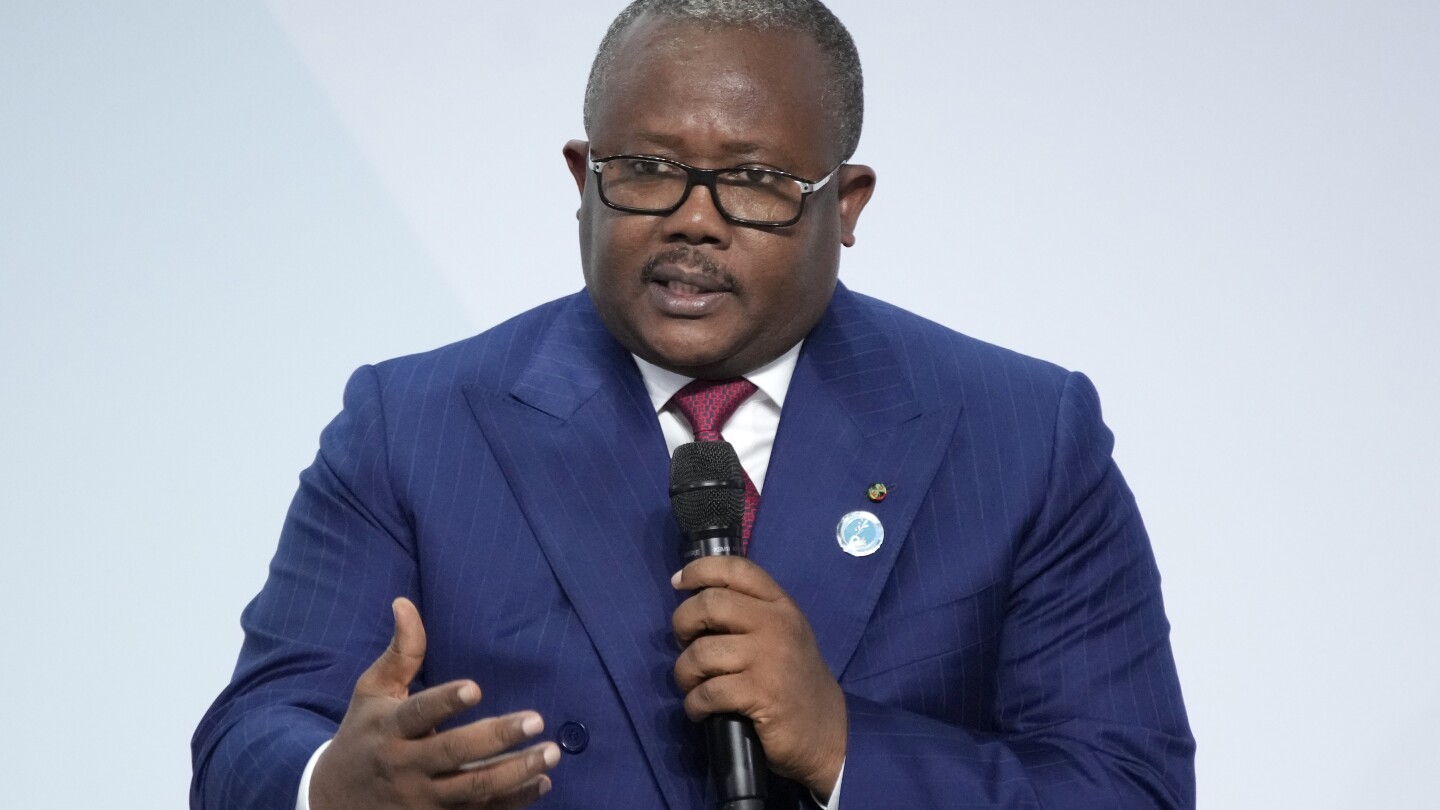BISSAU, Guinea-Bissau (AP) — Guinea-Bissau President Umaro Sissoco Embalo issued a decree Monday dissolving the nation’s opposition-controlled parliament, less than six months after it was reconstituted following a similar move by the president in 2022.
Embalo cited last week’s shootout between troops loyal to him and forces controlled by the parliament, which he described as a failed coup.
“The date for holding the next legislative elections will be set in due time in accordance with the provisions of … the Constitution,” the decree stated. “This Presidential Decree comes into force immediately.”
The order referred to the “seriousness,” of a shootout that started in the capital, Bissau, between members of the Presidential Palace Battalion and the National Guard as the former tried to rearrest two ministers under investigation for alleged corruption who had been released from custody by the latter.
The leadership of the parliament rejected the president’s move, noting that the constitution states that parliament cannot be dissolved in the first 12 months after an election.
“If this situation happens, regardless of the mechanism used, we are in the presence of a subversion of the democratic order or a constitutional coup d’état,” Domingos Simões Pereira, president of the parliament, told reporters.
It is the second time in less than two years that Embalo has dissolved the parliament. Three months after surviving a coup attempt in February 2022, the Guinea Bissau leader did the same thing, citing “unresolvable differences” with the legislature.
Guinea-Bissau’s semi-presidential system limits the president’s powers by allowing the majority party in the parliament to appoint the Cabinet. As a result, the National Guard — which is under the Ministry of Interior — is largely controlled by the opposition-dominated parliament, while the Presidential Palace Battalion is loyal to Embalo.
Embalo, a former army general, was declared the winner of a December 2019 runoff presidential election, which his opponent contested. Tensions have remained between him and the coalition of opposition groups that won the majority in Guinea-Bissau’s parliament in June when the parliament was reconstituted.
Last week’s shooting incident lasted from Thursday night until Friday morning and happened while the president was attending the U.N. climate summit in Dubai, United Arab Emirates. Upon his return, he dismissed Victor Tchongo, the head of the National Guard and said Tchongo hadn’t acted alone when he asked members of the guard to release the officials.
The bid to release the officials — Economy and Finance Minister Suleimane Seidi and Treasury Secretary António Monteiro — “clearly revealed the complicity of grand corruption with certain political interests” and sows “strong evidence of political complicity,” Embalo said in the decree.
It was not clear if the parliament would continue to sit despite the presidential decree. Pereira insisted the assembly remains in place because its dissolution is unconstitutional.
Since gaining independence from Portugal in 1974, Guinea-Bissau, a country of 2 million people, has endured continued political turmoil, experiencing four coups and more than a dozen attempted coups.
Last week’s shootout is the fourth attempted or successful military takeover of power in West and Central Africa in the past six months, including last week’s attacks on military barracks and prisons in Sierra Leone. It further raises tensions in the once-politically stable region where coups have surged, with eight military takeovers since 2020.
___
Asadu reported from Abuja, Nigeria

